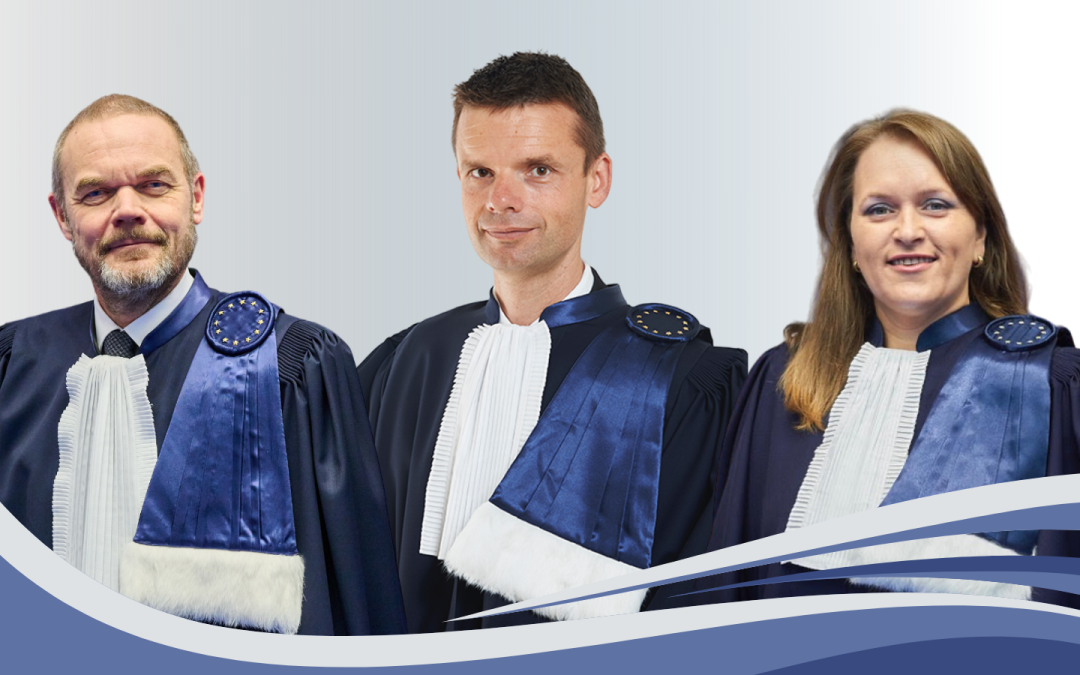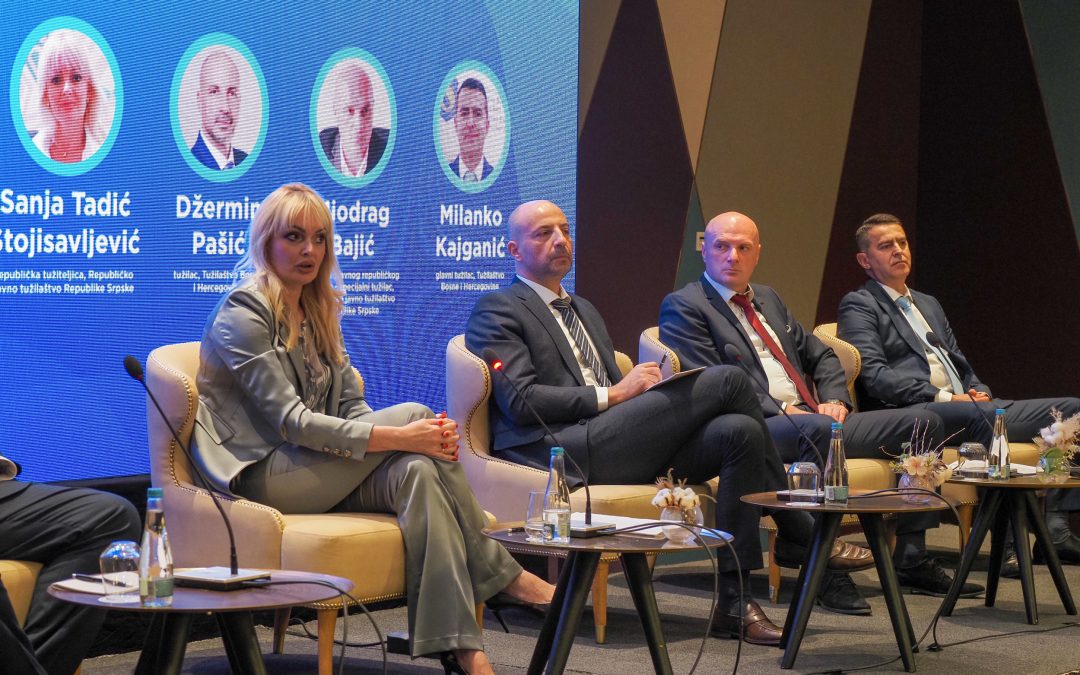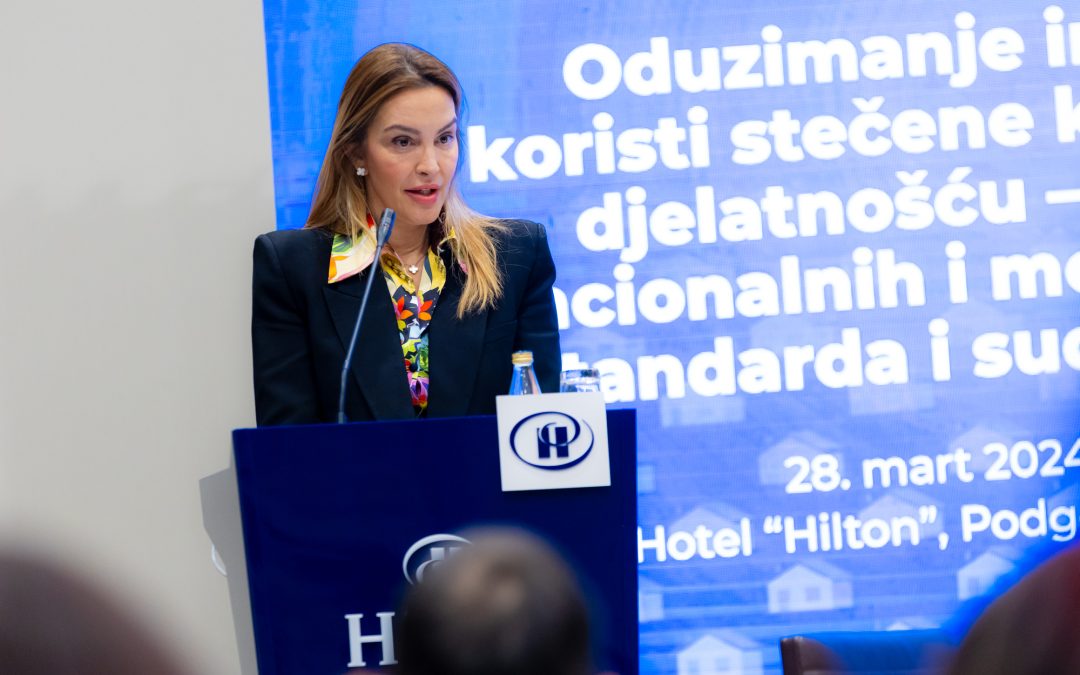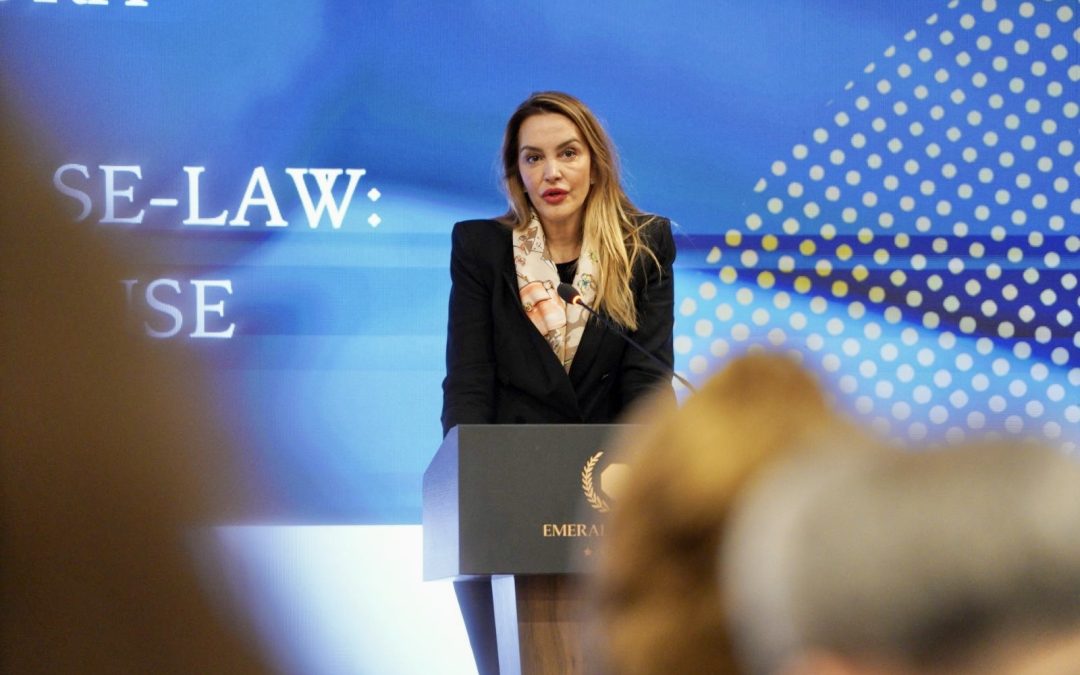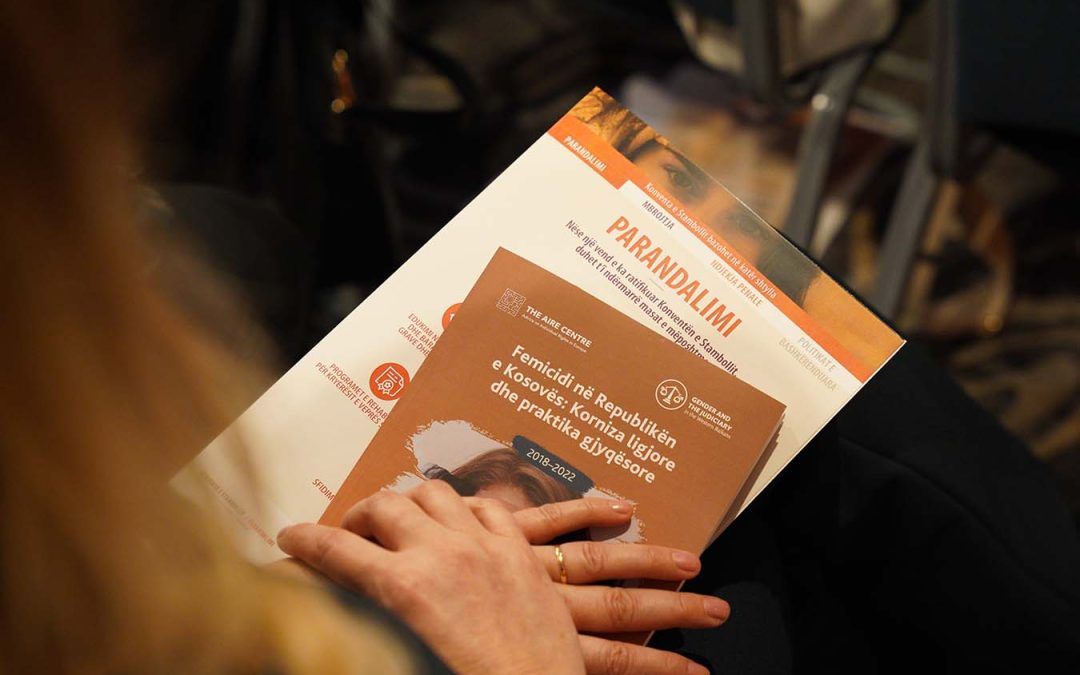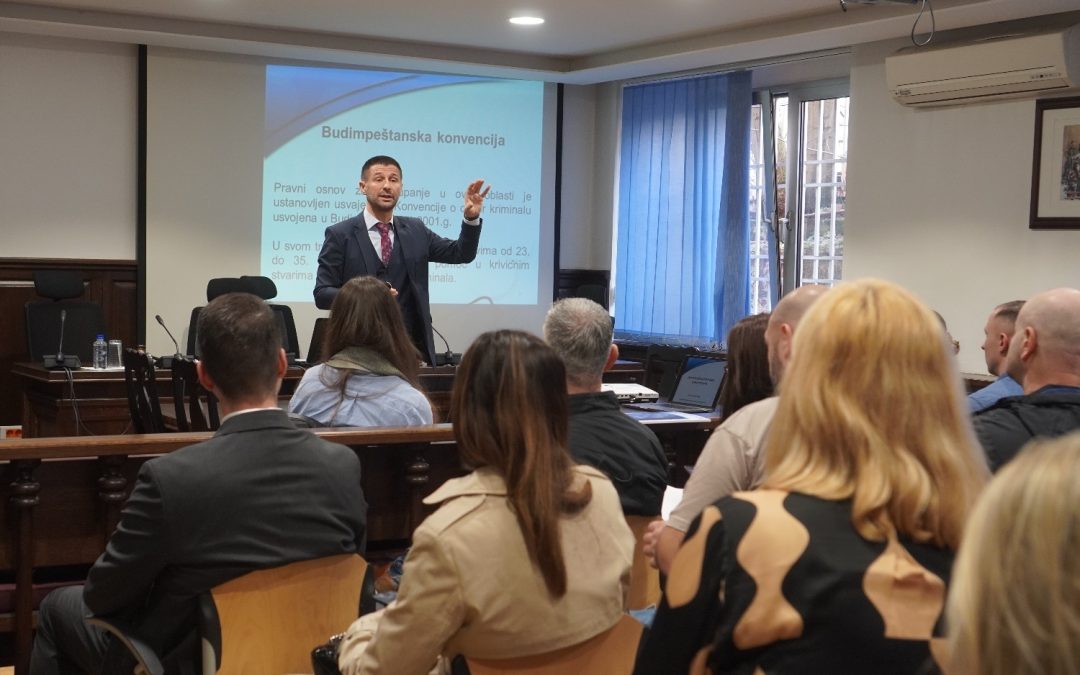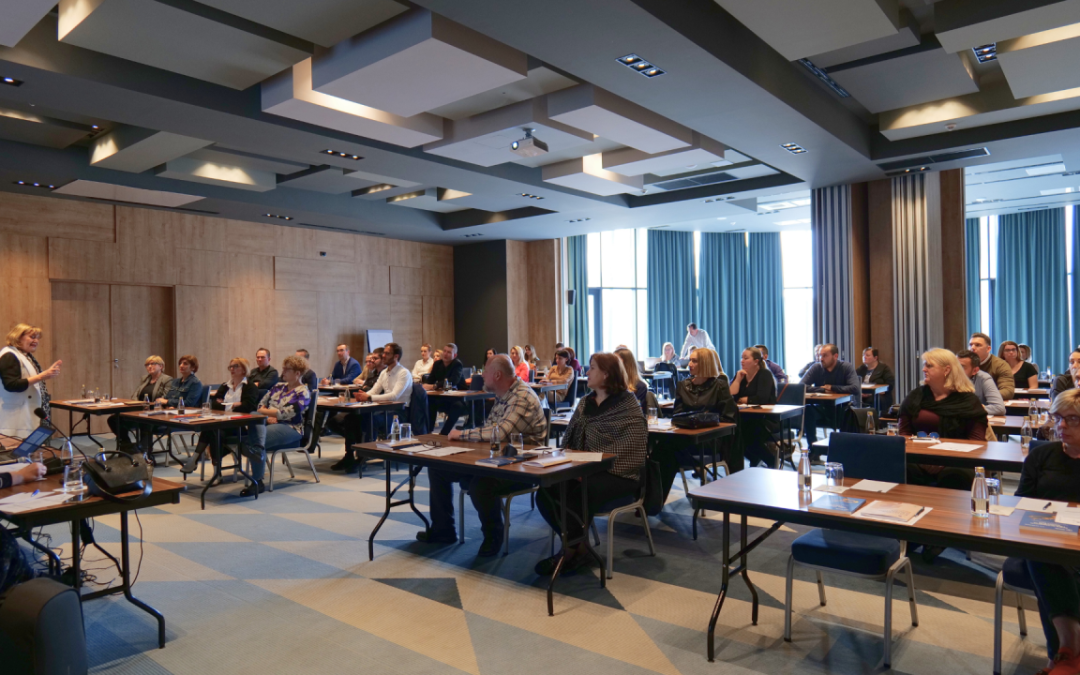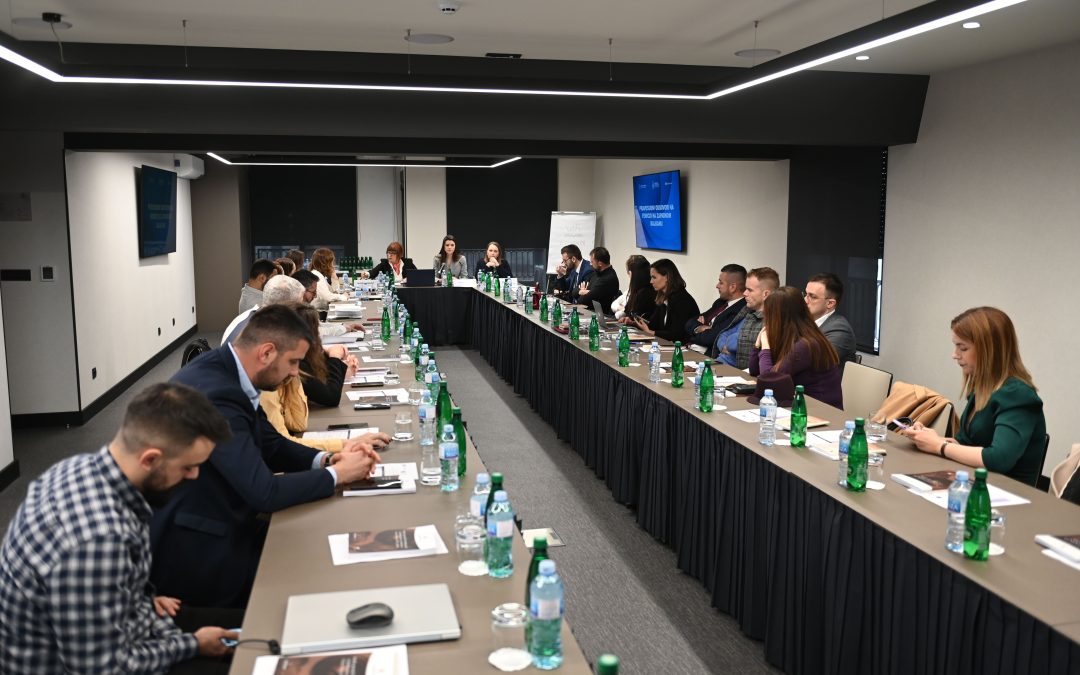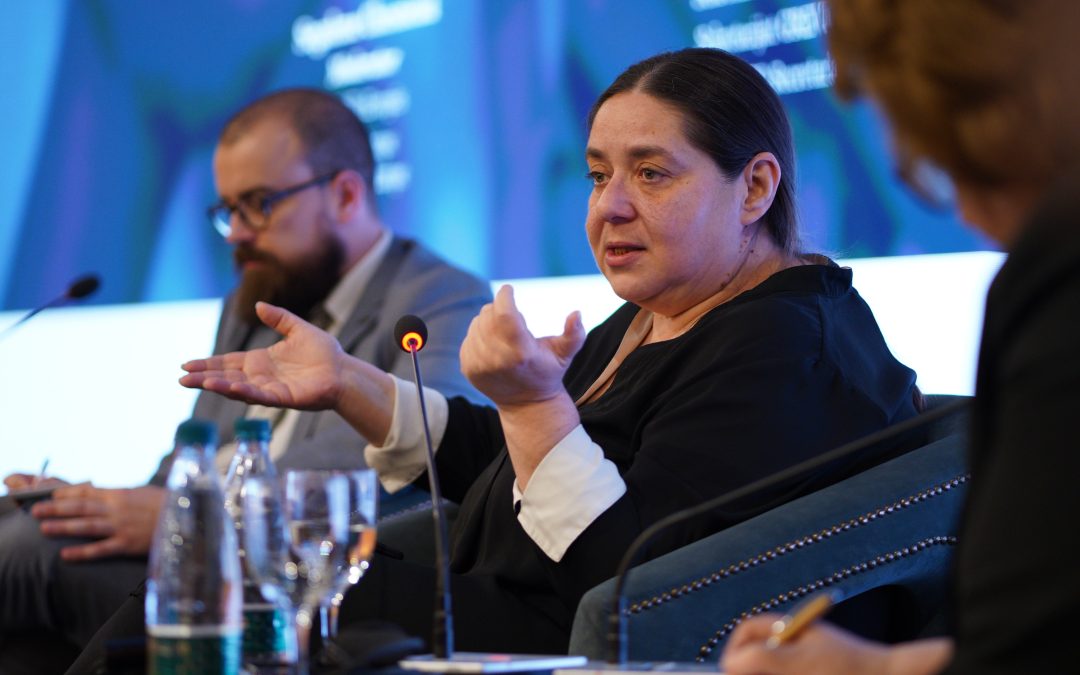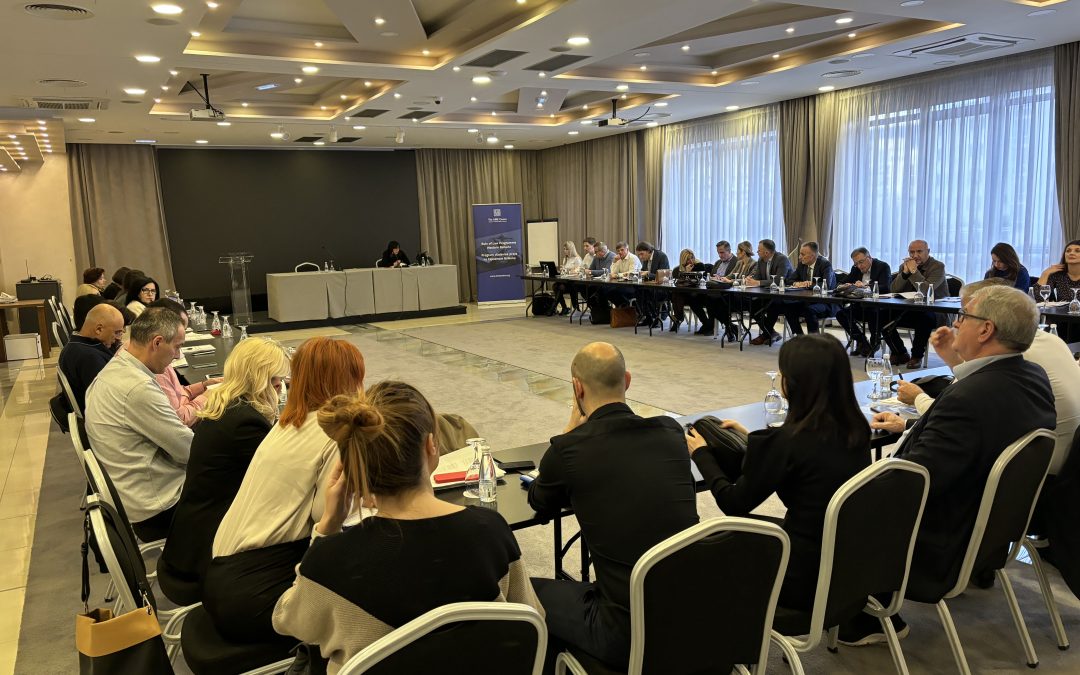Serbia, like many countries in the Western Balkans, struggles with significant challenges in combating gender-based violence and discrimination. Numerous studies highlight the widespread nature of violence against women, prompting Serbia to adopt new laws and amend existing ones to align with international standards. However, the key hurdle lies in effectively implementing these laws within the judicial system and beyond. Furthermore, gender stereotypes and prejudices, which are embedded in the society at large, are often seen as one of the primary root-causes of the violence and discrimination as well problems that arise from (in)effective punishment and prevention of such acts. To shed light on these issues, we spoke with Kosana Beker, Gender expert and Program Director of FemPlatz, and Nebojša Đuričić, Judge at the Higher Court in Belgrade.
“The point is that the whole society, more or less, has gender stereotypes and prejudices, which is also present in the judiciary. Regarding violence against women, this is reflected in the very small number of convictions for such acts, and even then, the penalties are very mild, mostly the legal minimum. It is similar when it comes to the verdicts for femicides, which are the most extreme form of violence against women. Very often, femicides are qualified as so-called “ordinary murders”, resulting in lighter sentences. I think the reason for this is the fact that many prosecutors, as well as judges, do not understand the gender-based nature of these murders, which would qualify them as serious murders”, said Kosana Beker, Program Director of FemPlatz and regional board member of the Gender Champions in the Judiciary Network (GCJ Network).
Beker emphasised the crucial role of all-inclusive education in combating gender stereotypes and prejudices, which can pave the way for fairer court proceedings and adjudication.
“We need education, education and more education. It is very difficult to deal with gender stereotypes and prejudices in society in general, these are things we grew up with, were taught from a young age and are part of us, and which we rarely questioned. Therefore, we must work hard, all together, to ensure that the members of the judiciary recognise the gender stereotypes and prejudices they have”, she added.
Beker further emphasised the significance of empowering women, particularly those from arginalised groups.
“We should listen to them, try to understand what kind of problems they struggle with, considering that sometimes it is very difficult to “put yourself in other’s shoes”, that is, to understand what kind of problems they face every day. In any case, it is important that everyone knows that discrimination is not only unacceptable but also prohibited, and that we ensure a society in which anyone who violates the provisions on the prohibition of discrimination will bear the consequences”, explained Beker.
Nebojša Đuričić, Judge at the Higher Court in Belgrade and member of the Gender Champions in the Judiciary Network (GCJ Network), acknowledged the solid legal framework in Serbia, but highlighted the importance of understanding the concept of discrimination and avoiding the relativization of violence against women.
“Successful implementation of the laws can only be achieved by providing the survivors with full assistance, support, and empowerment. To address this, it is crucial to develop appropriate psychosocial support mechanisms for victims. This may involve strengthening the capacity of social work centres or fostering better cooperation with specialised non-governmental organisations equipped to provide this type of support. Additionally, economic empowerment of victims should not be overlooked, as victims that face economic dependency on the perpetrator, can become discouraged from testifying in legal proceedings. Challenges can arise when victims refuse to testify, and if there is a lack of other substantial evidence, it can result in unsuccessful outcomes in criminal proceedings”, said Đuričić.
In terms of the position of survivors in court proceedings, Đuričić highlighted the establishment of services within courts and prosecutor’s offices to provide assistance and support.
“Victims can testify via video link, accompanied by appropriate protection measures. However, there is still room for improvement in the functioning of these services, including their implementation in all courts and prosecutor’s offices, with the primary goal of preventing secondary victimisation. It is crucial to expand the use of video link hearings not only in criminal proceedings but also in misdemeanour and civil proceedings. This approach ensures that survivors can provide their testimony without direct contact with the accused perpetrator. By utilising this opportunity, the aim is to safeguard the well-being of survivors throughout the legal process and mitigate the potential for further harm”, explained Đuričić.
Regarding compensation for damages, Đuričić underscored the need for improvement within criminal proceedings.
“In terms of compensation, although the Criminal Procedure Law allows for the possibility of awarding material and non-material damages in criminal proceedings, it is not a well-established practice. Instead, victims are often advised to pursue property legal claims in civil proceedings, which significantly complicates their position. To ensure the compensation of both material and non-material damages within the criminal proceedings, certain actions need to be taken. Firstly, lawyers representing the injured parties should issue compensation claims to facilitate the awarding of compensation in criminal proceedings. Additionally, prosecutors should prioritise seeking compensation for material or non-material damages whenever feasible through this proceeding. By implementing these measures, the aim is to streamline the process and enhance the likelihood of victims receiving proper compensation for the damages they have suffered during these proceedings”, said Nebojša Đuričić, Judge at the Higher Court in Belgrade.
Second Gender Equality and the Western Balkans Judicial Forum, a key regional event about judicial response to gender-based violence and discrimination, is only six days away. The Forum is organised by the AIRE Centre with the support of the Government of the United Kingdom, and it aims to tackle the question of how the judiciary can address various types of gender inequalities in the Western Balkans. This high-profile event will bring together key judicial actors from region and beyond, including representatives from European Court of Human Rights, representatives from important regional judicial and other state institutions, academics, and NGOs.
Throughout this article, the terms “victims” and “survivors” are used interchangeably to refer to individuals who have experienced violence. To learn more about terminology used when discussing sexual and other forms of violence, we recommend reading the paper published by the Sexual Assault Kit Initiative (SAKI) Victim or Survivor Terminology from Investigation Through Prosecution.
